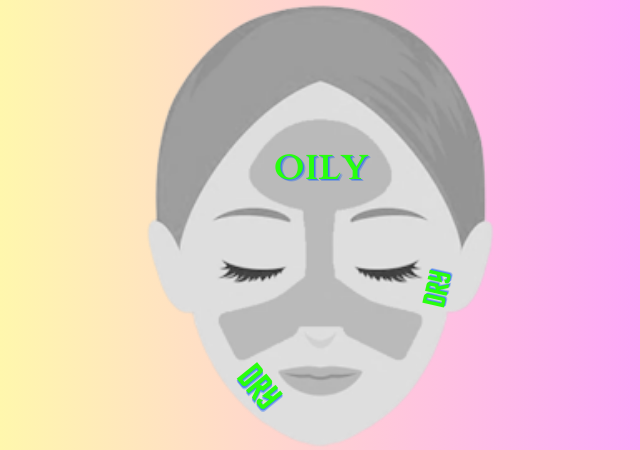Which Type of Skin Is Better, Oily or Dry?
Introduction
The debate surrounding which type of skin is superior, oily or dry, has been a long-standing one in the world of beauty and skincare. Each skin type comes with its unique set of characteristics and challenges, leading to a perpetual curiosity about which one is truly better. However, the truth is far more nuanced than a simple verdict, as the ideal skin type largely depends on individual preferences and proper care. In this article, we will delve into the characteristics, causes, and pros and cons of both oily and dry skin types, ultimately emphasizing the importance of skin health over a preference for one type over the other.
Understanding Oily Skin

Characteristics of Oily Skin:
Oily skin is characterized by an overproduction of sebum, the skin’s natural oil. Common features of oily skin include:
- Excess Sebum Production: Oily skin types produce more sebum than necessary, leading to a perpetually shiny complexion.
- Enlarged Pores: Excessive sebum can cause pores to appear larger and more visible.
- Prone to Acne: Oily skin is often more susceptible to acne due to clogged pores and the ideal breeding ground for acne-causing bacteria.
Causes of Oily Skin:
Understanding the causes of oily skin can help in managing its characteristics. Some common causes include:
- Genetics: Oily skin can run in families, suggesting a genetic predisposition.
- Hormonal Changes: Hormonal fluctuations, particularly during puberty, pregnancy, or menstruation, can stimulate sebum production.
- Environmental Factors: Humid climates and exposure to pollutants can exacerbate oiliness.
Pros and Cons of Oily Skin:
Advantages:
- Youthful Appearance: Oily skin tends to age more slowly, as the natural oils can help maintain skin elasticity and prevent the early onset of wrinkles.
- Natural Glow: The shine associated with oily skin can give your complexion a radiant and healthy appearance.
Challenges:
- Acne-Prone: Oily skin is often prone to acne breakouts, including blackheads and whiteheads.
- Excessive Shine: The constant shine can be a cosmetic challenge, making it necessary to use blotting papers or mattifying products.
Skincare Tips for Oily Skin:
- Use a Gentle Cleanser: Avoid harsh cleansers that can strip away too much oil, which can lead to increased oil production. Opt for a gentle, oil-free cleanser.
- Moisturize Properly: Even oily skin needs hydration. Choose a lightweight, oil-free moisturizer to prevent dryness while not clogging pores.
- Salicylic Acid: Incorporate products with salicylic acid to help exfoliate and unclog pores.
- Sunscreen: Don’t skip sunscreen, as some sunscreens are formulated to be non-comedogenic and suitable for oily skin.
Understanding Dry Skin

Characteristics of Dry Skin:
Dry skin, in contrast, is characterized by a lack of moisture and oil, leading to the following features:
- Tightness and Flakiness: Dry skin often feels tight, rough, and can develop flaky patches.
- Itching and Redness: Dryness can lead to itchiness and redness, making the skin uncomfortable.
- Fine Lines and Wrinkles: Dry skin is more prone to early signs of aging, such as fine lines and wrinkles.
Causes of Dry Skin:
Understanding the causes of dry skin can help address its underlying issues. Common causes include:
- Genetics: Like oily skin, dry skin can also have a genetic component.
- Weather Conditions: Dry and cold climates can exacerbate dry skin, as can exposure to harsh winds and low humidity.
- Age: As we age, the skin’s natural oil production tends to decrease, leading to dryness.
Pros and Cons of Dry Skin:
Advantages:
- Less Prone to Acne: Dry skin is less likely to experience acne breakouts due to reduced sebum production.
- Refined Appearance: Some people find the matte finish of dry skin to be sophisticated and elegant.
Challenges:
- Early Signs of Aging: Dry skin is more prone to developing fine lines and wrinkles at an earlier age.
- Sensitivity: Dry skin can be sensitive and prone to redness and irritation.
Skincare Tips for Dry Skin:
- Hydrate: Opt for a rich, hydrating moisturizer to replenish lost moisture.
- Gentle Cleansing: Use a mild, moisturizing cleanser to avoid further drying out your skin.
- Humidifiers: Consider using a humidifier to add moisture to the air in your home, especially in dry climates.
- Avoid Hot Water: Hot water can strip away natural oils, so use lukewarm water for bathing and washing your face.
The Middle Ground: Combination Skin

It’s important to note that not everyone falls neatly into the category of oily or dry skin. Many people have combination skin, which means they experience both oily and dry areas on their face. Identifying combination skin and using products tailored to its unique needs is crucial for achieving balanced skin.
Is One Skin Type Better Than the Other?
The question of whether oily or dry skin is better ultimately depends on individual preferences and priorities. Beauty is highly subjective, and what one person considers beautiful, another may not. Some may prefer the youthful radiance of oily skin, while others may appreciate the refined elegance of dry skin.
Rather than focusing on which skin type is superior, it’s essential to prioritize skin health and well-being. Regardless of your skin type, a proper skincare routine tailored to your specific needs can help you achieve a healthy and radiant complexion. Remember that there is no one-size-fits-all solution when it comes to skincare, and what works for one person may not work for another.
Conclusion
In the ongoing debate over whether oily or dry skin is better, the answer is far from clear-cut. Both skin types have their unique characteristics, challenges, and advantages. However, the key takeaway should be the importance of understanding your skin type and providing it with the care it needs. Ultimately, the goal of skincare should be to achieve and maintain healthy skin, regardless of whether it’s oily, dry, or a combination of both. Embrace your unique skin type, prioritize good skincare practices, and remember that beauty is as diverse as the people who define it.

My name is Rohit Vagh and I’m a content writer specializing in fashion and lifestyle. I have three years of experience in this field and have written various articles. My writing style is creative and engaging, and I strive to create content that resonates with my readers. I have a deep passion for fashion and am constantly researching the latest trends and styles to make sure my readers are up to date. I’m excited to continue my career in blogging, and I’m always looking for new opportunities in the fashion and lifestyle space.





